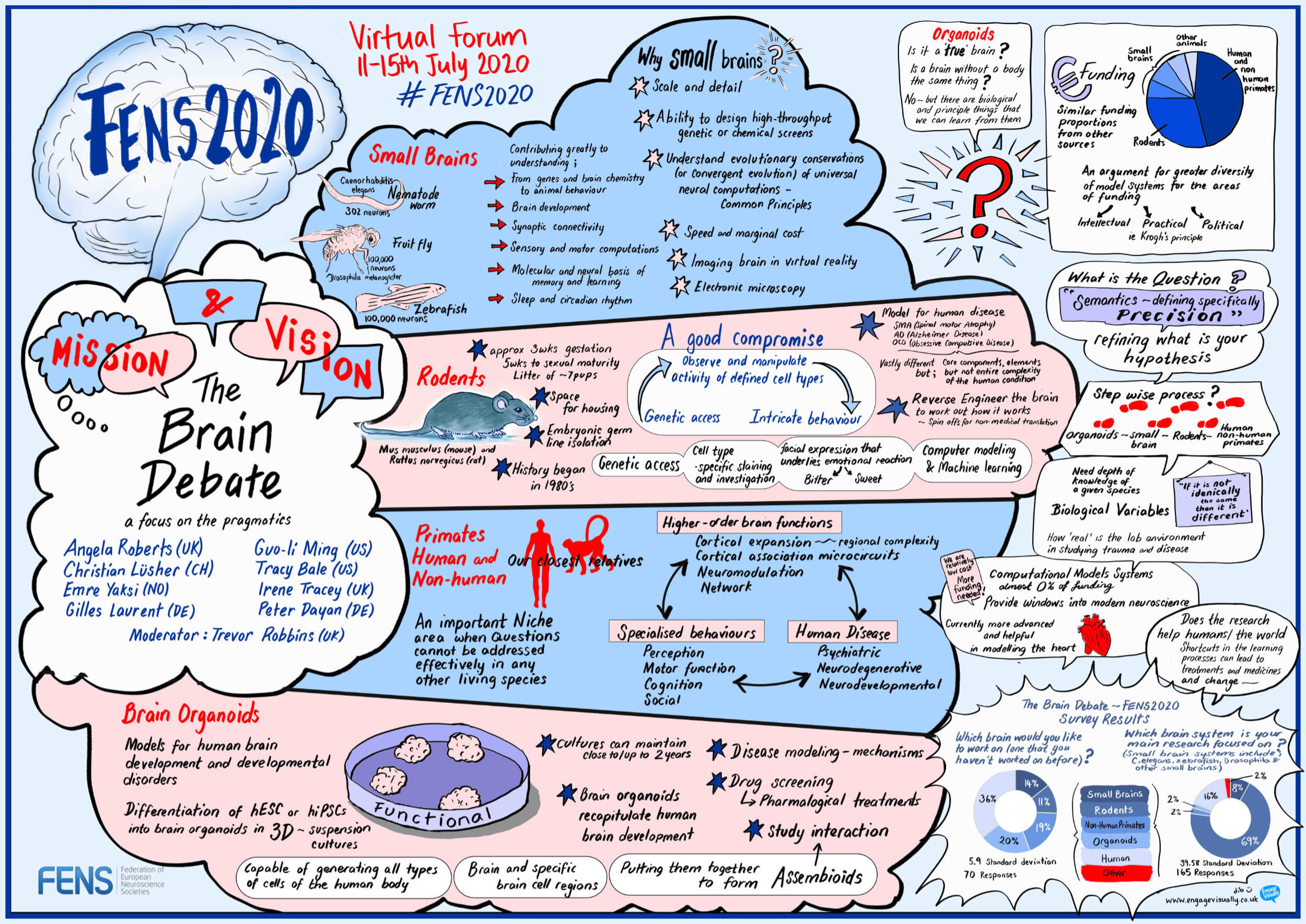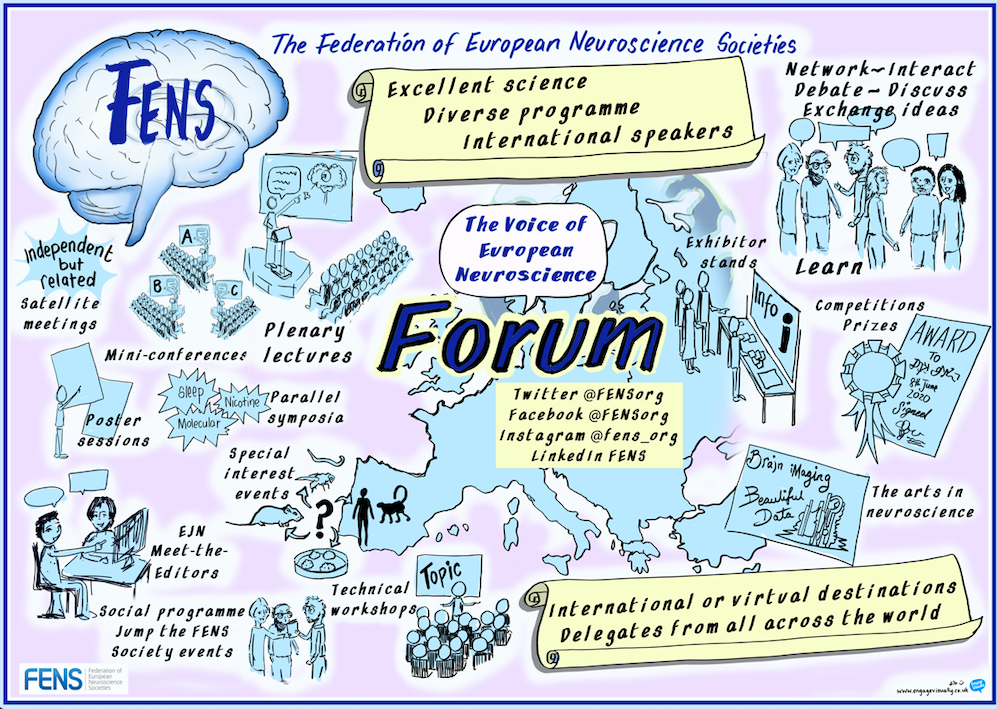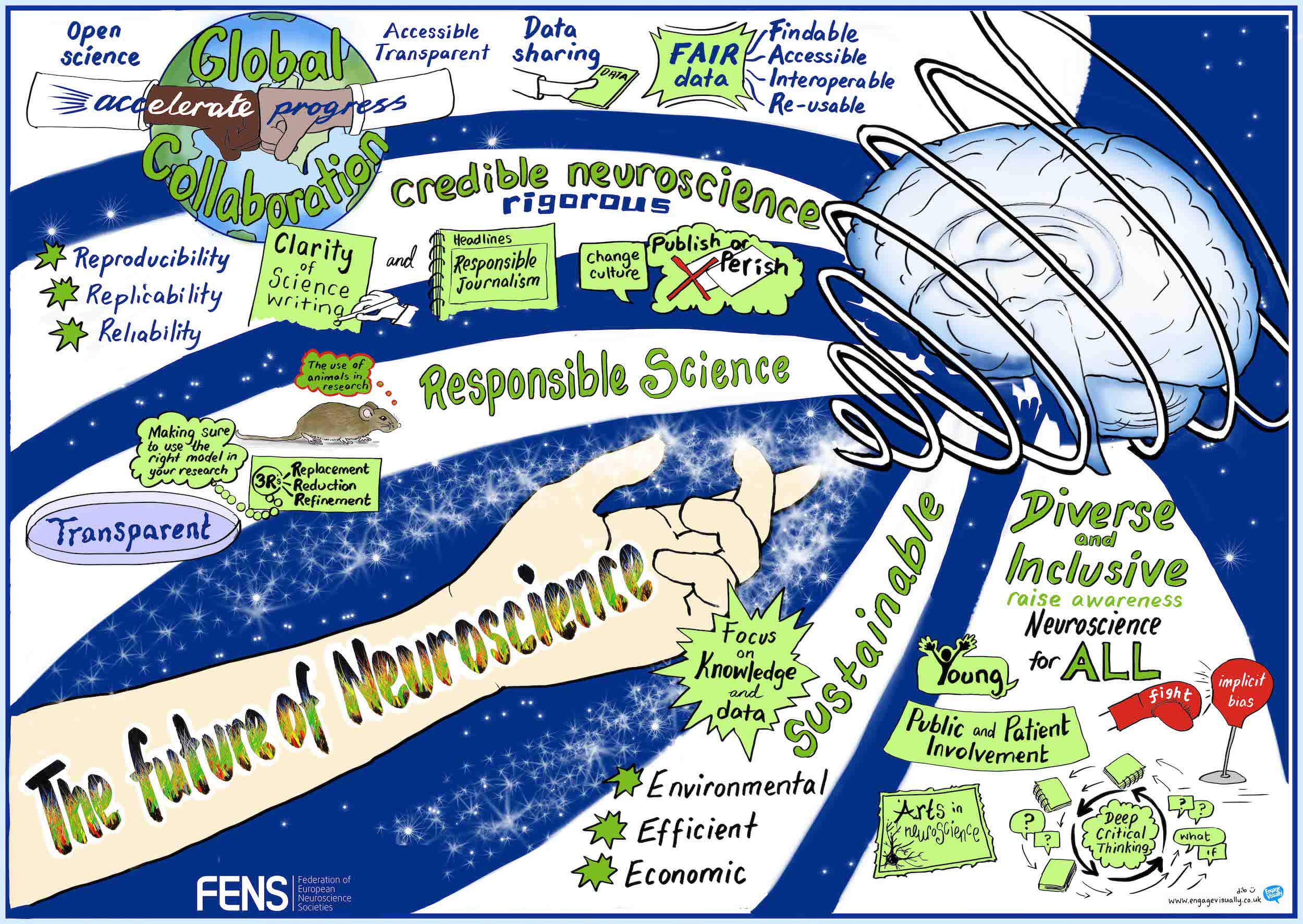FENS facilitates the dissemination of scientific information through a series of online resources, available to all.
Browse the directory below and access a vast array of online materials, including position papers, training and career development materials, outreach and advocacy resources.
| Title | |
|---|---|
| Peters, Alan – UK | View/Download |
| Pioneers of neuroscience in Poland | Open URL |
| Portraits of European Neuroscientists | Open URL |
| Postdocs Share: Moving From Europe to the United States | Open URL |
| Prof. Colin Blakemore – Two Eyes, One World: A Brief History of Binocular Vision |

|
| Prof. Gordon Shepherd – Creating Modern Neuroscience |

|
| Prof. Marco Piccolino – Vision and the senses in the work of Galileo Galilei |

|
| Prof. Richard Brown – Le Gros Clark versus Zuckerman: what were their disagreements? |

|
| Psychedelics, the Clinical versus the Neuroscientist’s point of view |

|
| Ranvier, Louis – France | View/Download |
| Rediscovering Hibernation: Research of the Belgrade School of Physiology | Open URL |
| Research on Drugs – Is it Time to Lift Restrictions? – Corpus Curiosum (Series I) |

|
| Running a Brain Awareness Week event | View/Download |
| Running a Brain Awareness Week event in 2022 | View/Download |
| Science & Society: Parkinson’s Disease |

|
| Seizing balance and success during your PhD experience (EJN article) | Open URL |
| Shedding Light on the Interaction Between Cannabinoids Use and Risk of Psychiatric Disorders | Open URL |
| Simarro, Luis – Spain | View/Download |
| Sobre el comportamento y signification de la oligodendroglia en la subtancia gris central, y de los gliocitos en los ganglios nerviosos perifericos – Fernando de Castro, 1946 | View/Download |
| Start your lab | Open URL |
| Starting and mid-career PI hurdles | PLAY VIDEO |
| Statement in support of animal research in Belgium and a transparent approach | Open URL |
| Statement of concern on the insufficient support for research and innovation and calling for rejection of new EU budget deal | View/Download |
| Statement of concern on the targeting of scientists by animal rights activists | View/Download |
| Stem Cell Therapy in Neurodegenerative Disorders and Spinal Cord Injury | Open URL |
| The Ascent: A Brief History of the Brain |

|
| The Brain Debate “Which brains are we studying?” |

|
| The Cajal School in the Peripheral Nervous System: The Transcendent Contributions of Fernando de Castro on the Microscopic Structure of Sensory and Autonomic Motor Ganglia | View/Download |
| The collection of human brain development in the Research Institute of Human Morphology, Moscow | Open URL |
| The Eduardo Pons Tortella neurological tissue bank | Open URL |
| The European Roots of Argentinean Neuroscience: Pio del Rio-Hortega |

|
| The Federation of European Neuroscience Societies – flyer | View/Download |
| The FENS Forum of neuroscience at a glance |

|
| The future of neuroscience |

|
| The History of Spinal Cord Research | View/Download |
| The Hitchhiker’s Guide to a Neuroscience Career | Open URL |
| The human brain: A philosophical and scientific perspective – Corpus Curiosum (Series IV) |

|
| The neuroscientific works of Sigmund Freud |

|
| The Power of Networks | Open URL |
| The Prospects of Brain Research within Horizon 2020: Responding efficiently to Europe’s societal needs | View/Download |
